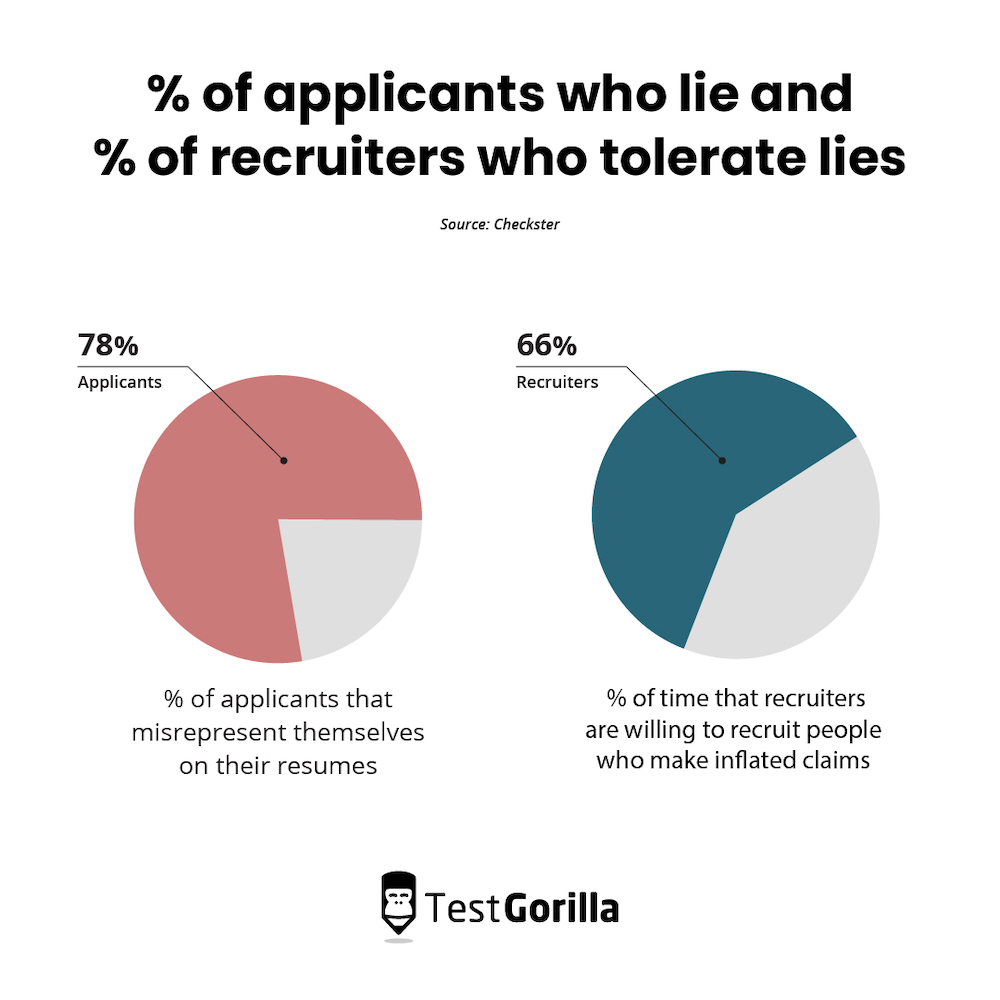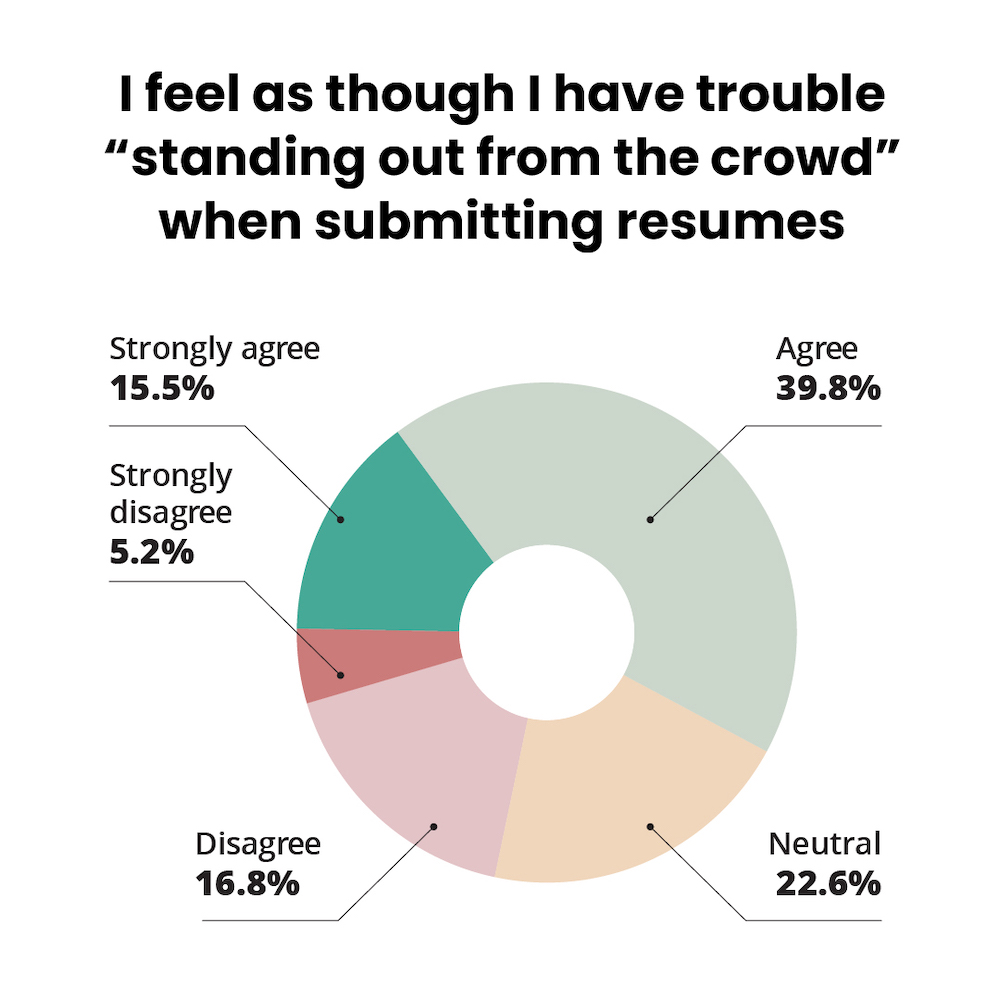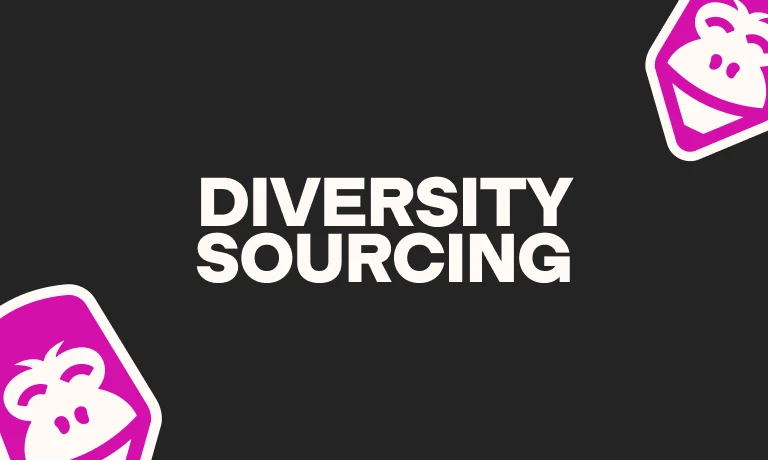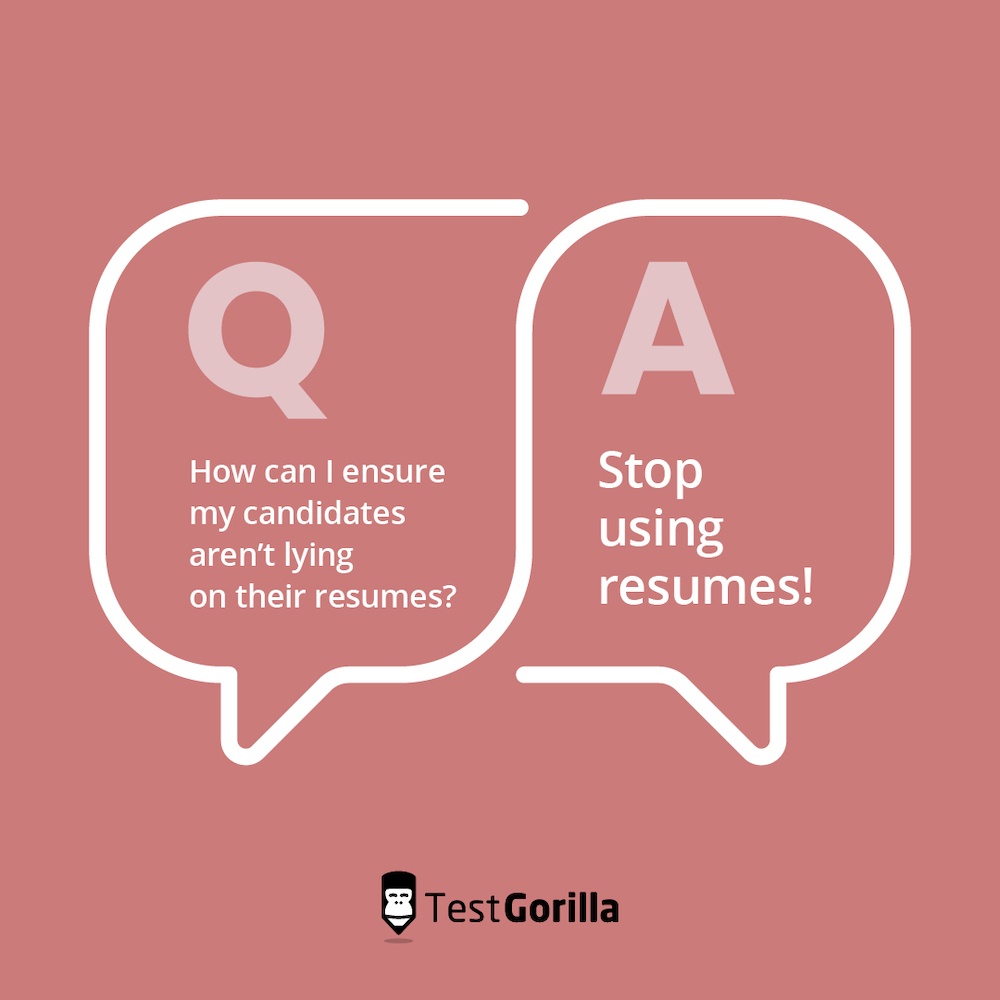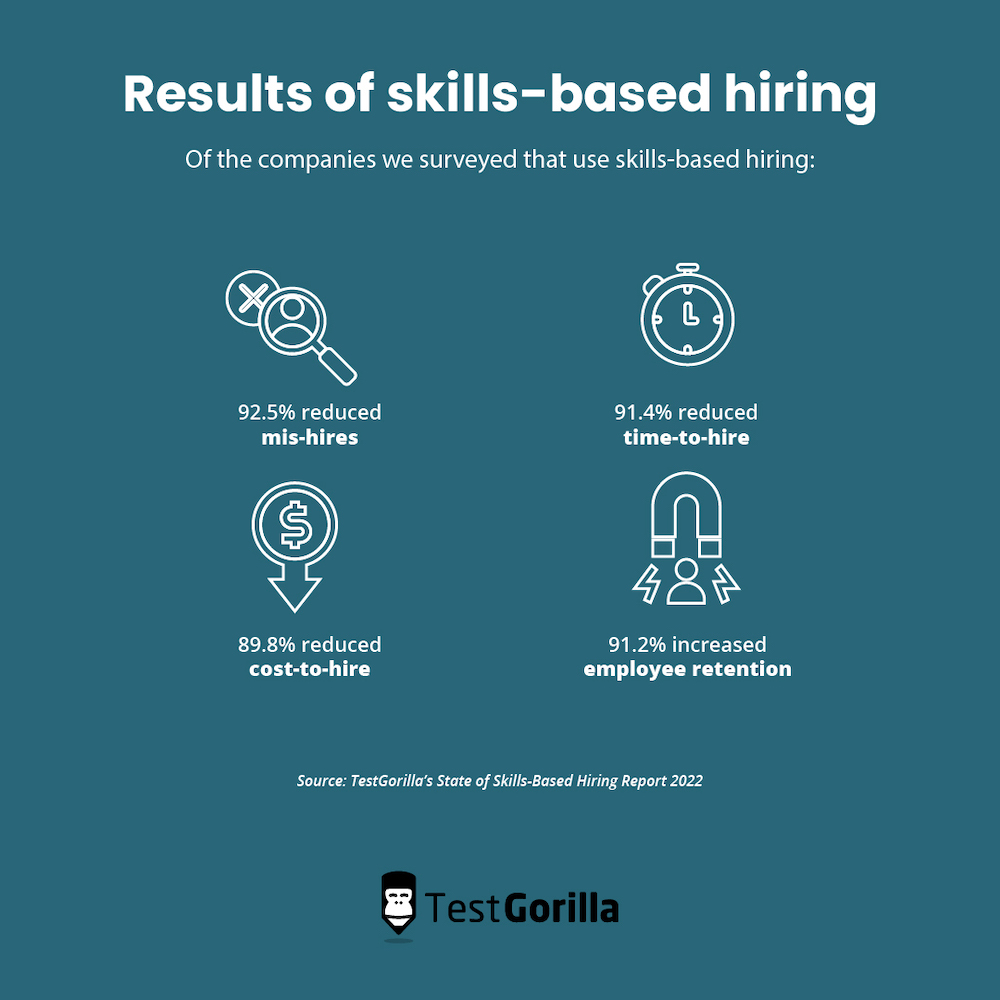When we’re children, we’re usually told that lying is bad. But when we grow up, we begin to realize that it’s not as simple as that. Is lying still bad if you’re doing it to protect someone? Or if it’s a way to protect yourself? What if I’m lying because telling the truth would result in more harm than telling a lie?
The philosophically-minded among us might take this a bit further – what is a lie anyway? Does presenting the truth in favorable terms count as lying? What about selecting which parts of the truth you tell and which you don’t? Where, and how, do we draw the line?
When we grow up even more and enter the world of employment, this philosophical dilemma takes on a new, uncomfortable hue. Do I have to be completely honest on my resume? Can I justify inflating a skill, or covering up an employment gap, if it means I get a job that I want and know I am capable of doing? And when does exaggerating become lying?
There can be serious consequences to lying on your resume
If you Google these kinds of questions, the results get very dramatic very quickly. The first search result for “should I lie on my resume,” which is from Glassdoor, reads:
“While it may seem like just a little white lie, dishonesty on your resume can have very serious consequences. It can lead to your job applications being immediately rejected, losing out on other job opportunities, huge fines, and in extreme cases, even imprisonment.”
The other top results resonate with the message here, that being: No, you shouldn’t lie on your resume because the potential consequences are very big and serious. According to response web recruitment, “with most businesses digging around for further candidate info through Google and social networks, any interviewer worth their salt will be able to pick holes in a resume full of bull, blarney, and pseudo-degrees.”
Rejection, fines, and imprisonment seem like dramatic outcomes. But they do sometimes happen to people who lie on their resumes, as articles on the topic are quick to point out. In 2019, for example, an Australian woman named Veronica Hilda Theriault was sentenced to 25 months in jail for fraudulent actions that helped her obtain a prestigious position in the Australian government. As well as lying about her experience, she used a photo of supermodel Kate Upton as her LinkedIn profile picture.
Another example is American man Wayne Simmons, who was sentenced to 33 months in prison in 2015 for lying about having 27 years of experience as a CIA special operations officer. According to his court judge, Simmons’ fake CIA career was “not just implausible but beyond incredible,” but it did win him a regular spot as a Fox News commentator and big jobs with defense contractors in Afghanistan.
These cases go above and beyond the charge of bull, blarney, and pseudo degrees. And yet each of these people was actually hired by someone. It was over a decade until Simmons got busted, by which time he’d made over 100 guest appearances on Fox News as a “former CIA operative.”
Stories like his and Theirault’s are sensationalized and used to scare people who are considering making far less extreme inflations to their resumes. But what they really imply is that businesses don’t always do the digging. The average corporate job opening in the US receives 250 applications: recruiters simply don’t have time to background check every resume they receive. How can we expect this system to weed out liars?
These stories are less of a warning against lying than a demonstration of how broken hiring processes are. By choosing a picture of a supermodel as her LinkedIn photo, Theriault was playing into beauty bias. Simmons was the son of an FBI fingerprints expert and a distinguished naval officer who was at Pearl Harbor; his sister was also a senior official in the Navy. No one bothered to check because of his family’s reputation. Whoever recruited him did so with a healthy dose of confirmation bias, undermining the scrupulousness that is attributed to recruiters.
So sure, lying on your resume is bad, and you probably shouldn’t do it. And people like Simmons get caught eventually. But have you ever seen a news story about someone being fined or imprisoned for lying about which sports team they captained at school? Or adding an extra month or two to the tenure of an old job to hide an employment gap?
For the John and Jane Does out there, the consequences of lying on our resumes aren’t as “very serious” as Glassdoor wants us to think. And that’s partly why so many of us do it.
Does lying on your resume make you a bad person?
In a recent survey, reference-checking platform Checkster found that 78% of applicants misrepresent themselves on their resumes, and hiring managers are willing to hire someone despite inflated claims 66% of the time.
Their report on these findings, which is titled “Is your company hiring charlatans?”, has a shocked and disappointed tone. “If such a high proportion of applicants lie, then who can your company possibly hire?”, Checkster laments. “These high levels of applicant dishonesty are shocking, but surely most companies must weed out fraudulent applications during the hiring process?… (our survey) suggests the answer might not be so optimistic.”
Their verdict and their disdain for candidates who lie and recruiters who tolerate lies is loud and clear. Lying on your resume makes you a charlatan. A charlatan is a person who performs confidence tricks to get money, power, or fame: In other words, a fraud and an impostor. A villain. Some infamous charlatans, for reference, include Charles Ponzi (after who the “Ponzi scheme” is named) and Grigori Rasputin, the last Russian Tsar’s sexually inappropriate renegade monk.
Checkster’s take is in tune with most of the Googlable discourse on the topic of lying on your resume. But lying on your resume doesn’t actually make you a bad person, or a charlatan unless, of course, your lies are as extensive as Wayne Simmons’. If you’re in the vast majority, your ‘lies’ are small inflations that will likely go unnoticed. You’re just someone who is trying to make themselves look competitive in a world where it feels impossible to make your resume stand out.
The best insights on HR and recruitment, delivered to your inbox.
Biweekly updates. No spam. Unsubscribe any time.
Why lie?
It’s time to have a different conversation about lying on resumes. Rather than using a few spectacular examples to demonize the 78% of applicants who misrepresent themselves, let’s ask ourselves: Why do people really lie on their resumes?
Over 50% of candidates have trouble standing out with their resumes
In a recent survey of 2,666 employees from across the world, we found that 55.3% of them either agreed or strongly agreed that they have trouble standing out from the crowd when submitting resumes. In addition, 56.5% felt they didn’t pass screening due to a lack of relevant experience on their resume.
This data tells us something interesting. It tells us that candidates lie on their resumes and resumes because they feel like they have to in order to stand out. Not because they want money, power, or fame. Not because they want a Fox News appearance. But because it’s so hard to look competitive on one piece of paper, even for the jobs you’ve got the skills for.
If you don’t have enough experience, or your name or background isn’t appealing to a recruiter, then your chances of a successful application are automatically much lower. The Lakishas and Jamals of the world are less competitive than the Emilys and Gregs just because of the way their names sound.
Resumes leave hiring decisions open to bias, and candidates’ lies often reflect these biases. 39.5% of Checkster’s surveyees have lied, or would lie, about a degree from a prestigious university when they were actually a few credits short, and 34.5% have claimed, or would claim, a different location of residence to give themselves an advantage. People choose to lie about these things specifically because they know that education and location biases exist.
The Glassdoor blog post ends: “Trying to sell yourself by lying on your resume with the intention to secure employment is not advisable and never a good idea. Instead of falsifying information, follow the best practices to create an interview-winning resume.” These best practices include groundbreaking suggestions such as “tailor your resume for each job” and “be specific.” Unfortunately, if you’re considering lying or inflating the information on your resume, you’ve probably already tried both of these things. Lying is, then, a logical last resort.
How to stop candidates from lying on their resumes
If you’re a recruiter or an HR manager, what can you do to stop candidates from lying on their resumes? Here are some of the most common suggestions:
Scour the internet
Look applicants up on social media
Check names, places, and phone numbers
Search their previous employers’ websites
Contact their previous employers
Confirm their degrees before scheduling interviews
Verify professional licenses and qualifications
Complete background checks
But if these options seem too time-consuming or unrealistic to you, then we have another suggestion.
Stop using them!
The best way to prevent job applicants from lying on their resumes and resumes is to stop using them altogether.
People lie on their resumes because, unless you’re a white, male, Harvard alumni, it’s very hard to stand out when you’re expected to shine from one document alone.
The resume has been around since 1482, when Leonardo Da Vinci allegedly penned a letter to the Duke of Milan. The letter outlined his skills and experience and offered his services to the Duke, the same way we outline our skills and offer our services using resumes today.
Since Da Vinci, the human race has innovated its way to skyscrapers, spacecraft, and the world wide web. But the way recruitment happens is much the same: For some reason, we’ve failed to modernize the way we hire. Crucially, we’ve failed to modernize even though we have the technology to do so.
What’s the alternative?
Skills-based hiring is a recruitment strategy that involves measuring applicants’ skills rather than reading through a document that states their qualifications and experience. The emphasis is on what candidates can do rather than what they’ve done and where they’ve come from. And because of pre-employment testing platforms like TestGorilla, assessing the skills of your candidates in real time is easy.
Skills-based hiring is already on the rise: 76% of the employers we surveyed in November 2022 are using it in some capacity, and the vast majority of these are seeing improvements such as reduced mis-hires, faster time-to-hire, lower cost-to-hire, and higher employee retention.
When it comes to weeding out liars and charlatans, these employers are winning. Skills-based hiring isn’t exactly a lie detector, but it does make the contents of a resume and the biases that might arise when recruiters read them obsolete. If an applicant is inflating the skills they have, their test results will demonstrate the truth about their skillset. If a recruiter is judging a great candidate solely by their name or background, that candidate’s assessment score will put their assumptions to the test.
To stop applicants from lying, ditch resumes
Candidates can’t lie on their resumes if you don’t ask for them.
The urge to lie is just a symptom: The resume is the cause. It represents a recruitment process that conjures feelings of inadequacy in candidates and pushes time-pressed recruiters to lean into biases. Contrary to their intention, resumes will often bring out the worst in us.
Skills-based hiring is on the rise, with the death of the resume in tow. Whether you’re paranoid about candidate dishonesty or not, the implications of a revolutionized recruitment process are huge.
We’re ready for a world where candidates don’t feel like they need to lie to stand out, and recruiters aren’t advised to carry out background checks to evade the Wayne Simmons’s of the world. Are you?
You've scrolled this far
Why not try TestGorilla for free, and see what happens when you put skills first.


